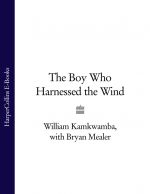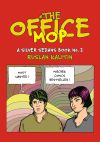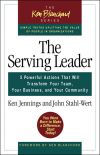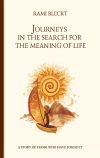Правообладателям!
Представленный фрагмент книги размещен по согласованию с распространителем легального контента ООО "ЛитРес" (не более 20% исходного текста). Если вы считаете, что размещение материала нарушает ваши или чьи-либо права, то сообщите нам об этом.Читателям!
Оплатили, но не знаете что делать дальше?
Текст бизнес-книги "The Boy Who Harnessed the Wind"
Автор книги: Bryan Mealer
Раздел: Жанр неизвестен
Текущая страница: 2 (всего у книги 2 страниц)
“Very well,” the chief replied. “Let me think about this and carry out some research. Come back on Sunday and I’ll have an answer.”
“Oh, zikomo kwambiri, Charo. Thank you, with respect.”
We waited until the farmer left and approached Mister Ngwata.
“We’re here to see Gilbert,” we said as we passed through the door.
“Hmmph.”
Gilbert was in his room with a tape deck singing to Billy Kaunda, who’d just been voted Malawi’s best musician of the year. For a boy, Gilbert had a beautiful singing voice and would later record two albums in Blantyre. My voice sounded like one of the guinea fowl that screeched in our trees as it pooped, but I never let that stop me.
“Gilbert, bo?”
“Bo!”
“Sharp?”
“Sharp!”
This was our slang, strictly observed at every meeting. The word bo was short for bonjour, started by some chaps learning French in secondary school and wanting to show off. I don’t know where “sharp” came from, but it was like saying, “Are you cool?” If you were feeling really good, you could even go a bit further:
“Sure?”
“Sure!”
“Fit?”
“Fit!”
“Ehhh.”
“Let’s go to trading,” I said, meaning the trading center. “I hear the drunkards were spilling out of Ofesi last night.”
This was the Ofesi Boozing Centre, a forbidden and therefore fascinating place. Ofesi sat on the outskirts of the trading center, one of the last shops before the road opened toward Chamama town. Loud, thumping music always played inside the dark doorway, even at noon. It was where men with screwed-up eyes would appear in the doorframe, smoking cigarettes, then toss out empty cardboard cartons of booze to join the mountain of others in the dirt. Whereas most people saw garbage in those cartons, we saw treasure and possibility.
Although Geoffrey, Gilbert, and I grew up in this small place in Africa, we did many of the same things children do all over the world, only with slightly different materials. And talking with friends I’ve met from America and Europe, I now know this is true. Children everywhere have similar ways of entertaining themselves. If you look at it this way, the world isn’t so big.
For us, we loved trucks. It didn’t matter what kind of trucks: four-ton lorries that rumbled past from the estates kicking up dust, or the half-ton pickups that traveled back and forth to Kasungu town, just an hour’s drive away, with passengers squeezed in back like a pen full of chickens. We loved all trucks, and each week, we’d compete to see who could build the biggest and strongest one. While my friends from America could find miniature trucks already assembled in their shopping malls, we had to build ours from wire and empty cartons of booze. Even still, they were just as beautiful.
The cartons discarded by the drunkards at Ofesi once held Chibuku Shake Shake, a kind of beer made from fermented maize that is popular in Malawi. It’s sour tasting and contains bits of maize that settle at the bottom, requiring you to shake it up before enjoying, hence the name. Believe it or not, it’s actually nutritious. I’m not a drinker myself, but I’ve been told it takes several cartons of Shake Shake to get a person drunk, so of course, people in Ofesi drink as many as possible before tossing them into the road.
After washing out the booze, these cartons were ideal for making the chassis of a toy truck. We used beer bottle caps for wheels, which also doubled as counters at school (“Three Coca-Cola plus ten Carlsberg equals thirteen”).
We picked mangoes from the neighbor’s trees and traded them for lengths of wire, which we used to make axles and attach the bottle cap wheels. We later discovered that plastic cooking oil caps worked much better as wheels, enabling the trucks to last much longer. We even took our fathers’ razor blades and cut designs into the plastic to give each vehicle its own signature treading. That way, when you saw a tire track in the dirt, you knew instantly if it belonged to the great fleets of Kamkwamba Toyota, for instance, or Gilbert Company LTD.
Soon we were building our own monster wagons, called chigirigiri, that resembled something like a go-cart in America. The frames were thick tree branches forked at one end, where a person could sit at the junction. We then dug up large, round tuber roots called kaumbu and carved them into wheels, using blue gum poles as axles. All the loose parts were then lashed together with vine and tree bark.
Taking a rope, one person pulled the car while the driver steered with his feet. With two cars side by side, we held monster derbies down the dirt road.
“Let’s race.”
“For sure.”
“Last one to reach Iponga’s will go blind!”
“GO!”
Iponga Barber Shop was the first of its kind in the Wimbe trading center, and where I got all my haircuts. When my father brought me there each month, Mister Iponga would drape me in a tattered sheet and say, “What will it be?” Pictures of men with many different styles hung from the wall—styles such as the Tyson, after the famous American boxer, in addition to the English Cut, the Nigeria, and the Buddha, which was totally bald. I usually went for the Office Cut, which was close all over without any frills. I think it was the cheapest, too.
Of course, the problem with getting haircuts in the trading center was the frequent power outages that plagued the country. These could easily happen while Iponga held his electric clippers to your head.
“Oops, lost the power. Come back in a few hours.”
“But…”
The best idea was to bring a hat, or else go at night, so you could slip home under the cover of darkness and return the next morning to have it fixed.
If we had some pocket change from our parents, we stopped by Mister Banda’s shop for a cold bottle of Fanta or a handful of Dandy sweets, which Banda kept in a glass jar below the shelves of Drews liver salts and Con Jex cough tabs, Top Society Luxury lotions, Easy Black hair dye, long ribbons of Blue Band margarine, bars of Lifebuoy soap, and packets of Cowbell powdered milk.
Or if we were hungry, we pooled our money and headed to the kanyenya stand, which was really just a giant vat of boiling grease over a fire, next to the boozing center. There we bought delicious pieces of fried goat and chips for just a few kwacha. The man working the vat grunted, “How much?” and you answered, “Five kwacha.” He sawed off a good chunk from a carcass hanging on the gallows, causing the swarm of black flies to circle once, then land again. He dropped the meat into the oil, added a few more sticks to his fire to get a raging boil, then threw in a handful of sliced potatoes. When everything was finished, he tossed them onto the counter, along with a small pile of salt for dipping.
“You mother is a good cooker,” said Gilbert. “But she’s never made anything as good as this.”
“For sure.”
But most of the time we had no money, so we spent our afternoons in hunger and dreams. On our way home we played a certain game with the mphangala bush. Its bright red flowers made the perfect crayons for children, but its stems could also tell your fortune. One person uprooted the stem, then tried to split it down the middle by pulling it apart. If you did this without breaking the stem in half, you’d have meat for dinner waiting for you at home.
“Eh man, you’re lucky. Let me come over!”
But if you broke the stem, that was a different story.
“Oh, sorry, friend, your mother’s at a funeral. You’ll find only water at home! HA! HA!”
Evenings in the village, just after the sun disappeared over the blue gums, were my favorite time of day. This was when my father and Uncle John—Geoffrey’s father—finished work in the maize and tobacco fields and returned home for supper. My mother and older sister Annie would be busy in the kitchen preparing the food, sending out all the delicious smells riding on the breeze. All my cousins would gather in the courtyard between my house and Geoffrey’s house to kick the soccer ball—made from plastic shopping bags we called jumbos, which we then bound in twine. And as the light faded, perhaps a farmer from the next village would stop by.
“Mister Kamkwamba, I have something from my garden,” he’d say, opening a bundle of papers to reveal some nice tomato plants. They’d negotiate a price and my father would plant them behind the house.
During the rainy season when the mangoes were ripe, we filled our pails with fruit from the neighbor’s trees and soaked them in water while we ate our supper. Afterward, we passed the fruits around, biting into the juicy meat and letting the sweet syrup run down our fingers. If there wasn’t any moonlight to continue playing, my father gathered all the children inside our living room, lit a kerosene lamp, and told us folktales.
“Sit down and hush up,” he said. “Have I told the one about the Leopard and the Lion?”
“Tell it again, Papa!”
“Okay, well…one day long long ago, two girls were walking from Kasungu to Wimbe when they became too tired to continue.”
We sat on the floor, hugging our knees against our chests and hanging on every word. My father knew many stories, and the Leopard and the Lion was one of my favorites. It went like this:
Rather than taking a nap in the dirt, the two young girls looked for a clean, quiet place to sleep. After some time, they came across the house of an old man. After making their request, the old man said, “Of course you can stay here. Come on in.”
That night when the girls were fast asleep, the old man snuck out the door and walked into the dark forest. There he found his two best friends, the Leopard and the Lion.
“My friends, I have some tasty food for you. Just follow me.”
“Why thanks, old man,” the Leopard said. “We’re coming straightaway.”
The old man led his two friends through the forest and back to his house. The Leopard and the Lion were so excited for their meal they even started singing a happy tune. But as they were approaching, the two girls happened to wake up. They felt refreshed after their nap and decided to continue on their journey. Not seeing the old man, they left a kind note thanking him for the bed.
Finally, the old man arrived at the house with the Leopard and the Lion.
“Wait here and I’ll go and get them,” he said.
The old man saw the bed was empty. Where did they go? he wondered. He looked for the girls but couldn’t find them. Finally, he discovered the note and knew they were gone. Outside, the Leopard and the Lion were growing impatient.
“Hey, where’s our food?” said the Leopard. “Can’t you see we’re salivating out here?”
The old man called out, “Hold on, they’re here someplace. Let me find them.”
The old man knew if the Leopard and the Lion discovered that the girls had gone, they would surely eat him for supper instead. The old man kept a giant gourd in the corner of his house for drinking water. Seeing no other option, he jumped inside and hid.
Finally, after waiting so long, the Lion said, “That’s it. We’re going in!”
They broke open the door and found the house empty. No girls, no old man, no supper.
“Hey, the old man must’ve tricked us,” said the Leopard. “He’s even left himself.”
Just then, the Leopard spotted a bit of the old man’s shirt hanging out from the gourd. He motioned to the Lion, and together they tugged and tugged until the old man came flying out.
“Please no, I can explain,” cried the old man. But the Leopard and the Lion had no patience for stories and quickly ate him.
My father clapped his hands together, signaling the end of the story. Then he looked around to all of us children.
“When planning misfortune for your friends,” he said, “be careful because it will come back to haunt you. You must always wish others well.”
“Tell another, Papa!” we shouted.
“Hmm, okay…what about the Snake and the Guinea Fowl?”
“For sure!”
Sometimes my father would forget the stories halfway and make them up as he went along. These tales would spiral on for an hour, with characters and motives ever changing. But through his own kind of magic, the stories would always end the same. My father was a born storyteller, largely because his own life had been like one fantastic tale.
Внимание! Это ознакомительный фрагмент книги.
Если начало книги вам понравилось, то полную версию можно приобрести у нашего партнёра - распространителя легального контента ООО "ЛитРес".Правообладателям!
Представленный фрагмент книги размещен по согласованию с распространителем легального контента ООО "ЛитРес" (не более 20% исходного текста). Если вы считаете, что размещение материала нарушает ваши или чьи-либо права, то сообщите нам об этом.Читателям!
Оплатили, но не знаете что делать дальше?






